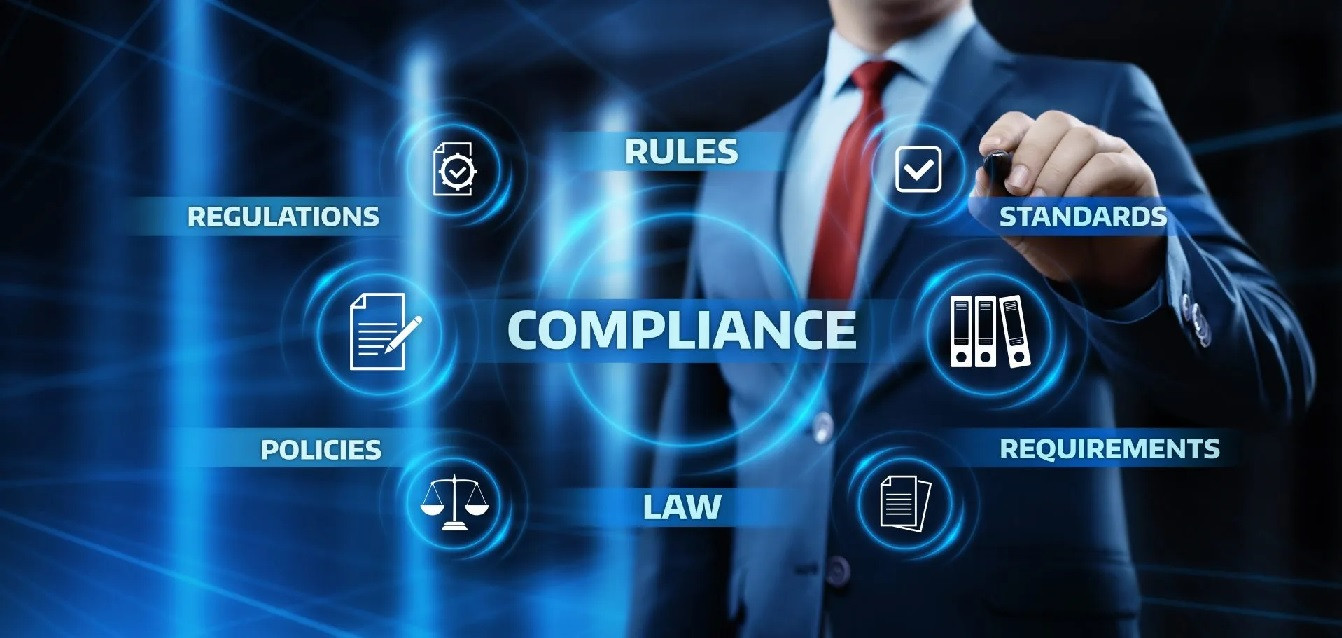The Rising Tide of Data Privacy and Security Regulations
In the rapidly evolving digital landscape, tech companies face an increasingly complex web of data privacy and security regulations. These regulations, designed to protect consumer information and ensure transparency, are critical for maintaining trust in the digital economy. However, complying with these regulations can be challenging, particularly for companies handling vast amounts of data across multiple jurisdictions. To meet these challenges, many tech companies are turning to cloud-based compliance solutions. These solutions offer a powerful, flexible, and cost-effective way to manage compliance with data privacy and security regulations, helping companies stay ahead in an increasingly regulated environment.
Navigating the Regulatory Landscape
Data privacy and security have become central concerns for both consumers and regulators. High-profile data breaches and the misuse of personal information have led to a growing demand for stricter regulations. In response, governments worldwide have introduced comprehensive data protection laws, such as the General Data Protection Regulation (GDPR) in Europe and the California Consumer Privacy Act (CCPA) in the United States. These regulations impose stringent requirements on companies collecting, storing, processing, and sharing personal data.
The Importance of Compliance for Tech Companies
For tech companies, which often rely on data-driven business models, complying with these regulations is a legal obligation and a critical factor in maintaining customer trust. Non-compliance can result in severe penalties, legal liabilities, and damage to a company’s reputation. As the regulatory environment continues to evolve, the need for effective compliance management has never been more urgent.
The Rise of Cloud-Based Compliance Solutions
Cloud-based compliance solutions have emerged as a key tool for tech companies seeking to navigate the complexities of data privacy and security regulations. These solutions offer several advantages that make them well-suited to the challenges of modern compliance management.
Scalability and Flexibility
One of the most significant benefits of cloud-based compliance solutions is their scalability. Tech companies often deal with fluctuating amounts of data, especially as they grow or enter new markets. Cloud-based solutions can easily scale up or down to accommodate these changes, ensuring that compliance processes remain effective regardless of the volume of data being handled. This flexibility is particularly important for startups and growing companies that may not have the resources to invest in large, on-premises compliance infrastructures.
Centralized Management
Cloud-based solutions allow companies to centralize their compliance management efforts. By storing data and managing compliance processes in the cloud, companies can ensure that all aspects of their operations adhere to the same standards, regardless of location or department. This centralization simplifies the management of compliance across different jurisdictions, making it easier to track regulatory changes, implement necessary updates, and ensure that all employees and systems are in line with current regulations.
Real-Time Monitoring and Reporting
Compliance is not a one-time task but an ongoing process that requires continuous monitoring and reporting. Cloud-based solutions provide real-time monitoring of data and compliance activities, allowing companies to quickly identify and address potential issues before they become significant problems. These solutions often include automated reporting features, which generate compliance reports in real-time, ensuring that companies can demonstrate their adherence to regulations whenever required.
Enhanced Data Security
Data security is a critical component of compliance with privacy regulations. Cloud-based solutions are often equipped with advanced security features that help protect sensitive data from unauthorized access, breaches, and other threats. These features can include encryption, multi-factor authentication, and regular security updates, all of which contribute to a robust security framework. By leveraging the security capabilities of cloud providers, tech companies can enhance their data protection efforts and ensure compliance with security regulations.
Cost-Effectiveness
Implementing compliance measures can be costly, particularly for small and medium-sized tech companies. Cloud-based solutions offer a cost-effective alternative to traditional, on-premises compliance systems. By eliminating the need for expensive hardware, software, and ongoing maintenance, cloud-based solutions reduce the overall cost of compliance. Additionally, the subscription-based pricing models commonly used by cloud providers allow companies to pay only for the services they need, further reducing costs and making compliance management more accessible to companies of all sizes.
Global Compliance Management
One of the biggest challenges tech companies face is complying with different regulations in multiple jurisdictions. Data privacy laws can vary significantly from one region to another, and companies that operate internationally must ensure that they meet the requirements of each jurisdiction in which they do business.
Cloud-based compliance solutions are particularly valuable in this context because they allow companies to manage compliance on a global scale. These solutions can be configured to support different regulatory frameworks, enabling companies to comply with local laws while maintaining a consistent approach to data privacy and security across their entire organization. For example, a cloud-based solution might help a company comply with GDPR in Europe, CCPA in California, and other local regulations by providing the tools and frameworks necessary to manage and protect data in accordance with each set of rules.
The Future of Cloud-Based Compliance Solutions
As data privacy and security regulations continue to evolve, the demand for effective compliance management solutions will only grow. Cloud-based compliance solutions are likely to play an increasingly important role in helping tech companies navigate this complex landscape. These solutions offer the scalability, flexibility, and security that companies need to stay compliant, while also providing the cost-effectiveness and efficiency necessary to compete in a rapidly changing market.
Moreover, the integration of emerging technologies such as artificial intelligence (AI) and machine learning (ML) into cloud-based compliance solutions is expected to further enhance their capabilities. AI and ML can help automate more aspects of compliance, from monitoring data flows to predicting potential compliance risks, making it even easier for companies to stay ahead of regulatory changes and ensure ongoing compliance.
Conclusion: Embracing the Future of Compliance
In an era where data privacy and security are paramount, tech companies must prioritize compliance with an ever-growing array of regulations. Cloud-based compliance solutions offer a practical, scalable, and cost-effective way to manage these challenges. By centralizing compliance efforts, enhancing security, and providing real-time monitoring and reporting, these solutions enable tech companies to maintain compliance with confidence, even in the face of complex and evolving regulatory landscapes. As the digital world continues to expand, the role of cloud-based compliance solutions will undoubtedly become even more critical in ensuring that tech companies can protect their data, their customers, and their reputations.

















